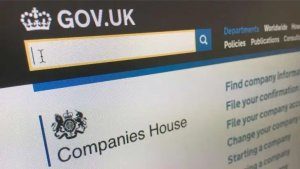- Employment law for employers
- Corporate
- Corporate recovery, restructuring & insolvency
- Employment law for employees
- UK trusts, tax and estate planning

Shorter Reads
Coronavirus: tax relief for the self-employed
The offer to meet 80% of “furloughed” employees’ salaries doesn’t easily translate to the self-employment model. What help is the government offering?
1 minute read
Published 25 March 2020
Key information
Pressure is increasing on the government to announce more help for the self-employed, who make up a significant part of the country’s economy. Around 5 million people have been attracted to this way of working, which has given them flexibility and independence and the ability to pursue a business in a way that works for them. And, of course, self-employment has long been the model for professional services firms.
However, it’s that flexibility which is a significant part of the challenge for the government. As any self-employed person who has ever sought a mortgage will know, it is almost impossible to show a steady income, with many unincorporated businesses being strongly seasonal. So the offer to meet 80% of “furloughed” employees’ salaries doesn’t easily translate to this model, although measures to provide some equivalent are being brought before Parliament.
In the meantime, and as a first step to provide some relief, it has been announced that the 31 July 2020 tax payment on account which would normally have to be made will be deferred to January 2021. There is no need to apply for deferral – it will be done automatically, without penalties or interest. In principle, this is only a deferral, helping with cashflow. In practice, though, you will have submitted your tax return for the 2019/20 tax year, so your tax will be calculated on known income for this period, rather than an estimate based on 2018/19’s very different circumstances. So, any loss of business through coronavirus will be reflected in lower taxable income, and therefore lower tax. The figure from your 19/20 tax return will also be used to calculate the advance payments to be made on 31 January 2021 and 31 July 2021, so potentially reducing those payments also. (Although do be careful, if your business returns to normal levels quickly, as those payments on account may not be enough to cover your actual liability, so a balancing payment will be required in January 2022.)
What else can the self-employed do?
As with all businesses, you may be able to benefit from, for example:
- the deferral of VAT payments,
- HMRC “time-to-pay” arrangements – call the free coronavirus helpline on 0800 015 9559, and
- support for employees’ wages, as above.
You may also be able to access Employment and Support Allowance, if you are ill or have had to self-isolate and/or Universal Credit, which is being made available to self-employed people at the same rate as statutory sick pay for employees. All of these measures, while they may be small individually, when added together can help your business make it through to better times.
Related content
Shorter Reads
Coronavirus: tax relief for the self-employed
The offer to meet 80% of “furloughed” employees’ salaries doesn’t easily translate to the self-employment model. What help is the government offering?
Published 25 March 2020
Associated sectors / services
Authors
Pressure is increasing on the government to announce more help for the self-employed, who make up a significant part of the country’s economy. Around 5 million people have been attracted to this way of working, which has given them flexibility and independence and the ability to pursue a business in a way that works for them. And, of course, self-employment has long been the model for professional services firms.
However, it’s that flexibility which is a significant part of the challenge for the government. As any self-employed person who has ever sought a mortgage will know, it is almost impossible to show a steady income, with many unincorporated businesses being strongly seasonal. So the offer to meet 80% of “furloughed” employees’ salaries doesn’t easily translate to this model, although measures to provide some equivalent are being brought before Parliament.
In the meantime, and as a first step to provide some relief, it has been announced that the 31 July 2020 tax payment on account which would normally have to be made will be deferred to January 2021. There is no need to apply for deferral – it will be done automatically, without penalties or interest. In principle, this is only a deferral, helping with cashflow. In practice, though, you will have submitted your tax return for the 2019/20 tax year, so your tax will be calculated on known income for this period, rather than an estimate based on 2018/19’s very different circumstances. So, any loss of business through coronavirus will be reflected in lower taxable income, and therefore lower tax. The figure from your 19/20 tax return will also be used to calculate the advance payments to be made on 31 January 2021 and 31 July 2021, so potentially reducing those payments also. (Although do be careful, if your business returns to normal levels quickly, as those payments on account may not be enough to cover your actual liability, so a balancing payment will be required in January 2022.)
What else can the self-employed do?
As with all businesses, you may be able to benefit from, for example:
- the deferral of VAT payments,
- HMRC “time-to-pay” arrangements – call the free coronavirus helpline on 0800 015 9559, and
- support for employees’ wages, as above.
You may also be able to access Employment and Support Allowance, if you are ill or have had to self-isolate and/or Universal Credit, which is being made available to self-employed people at the same rate as statutory sick pay for employees. All of these measures, while they may be small individually, when added together can help your business make it through to better times.
Associated sectors / services
- Employment law for employers
- Corporate
- Corporate recovery, restructuring & insolvency
- Employment law for employees
- UK trusts, tax and estate planning
Authors
Need some more information? Make an enquiry below.
Subscribe
Please add your details and your areas of interest below
Article contributor
Sharon
FryerPartner - Head of Commercial Services
Specialising in Corporate, Commercial and Manufacturing
Enjoy reading our articles? why not subscribe to notifications so you’ll never miss one?
Subscribe to our articlesMessage us on WhatsApp (calling not available)
Please note that Collyer Bristow provides this service during office hours for general information and enquiries only and that no legal or other professional advice will be provided over the WhatsApp platform. Please also note that if you choose to use this platform your personal data is likely to be processed outside the UK and EEA, including in the US. Appropriate legal or other professional opinion should be taken before taking or omitting to take any action in respect of any specific problem. Collyer Bristow LLP accepts no liability for any loss or damage which may arise from reliance on information provided. All information will be deleted immediately upon completion of a conversation.
Close






























































































